World War I legitimized the semiautomatic pistol.

At the turn of the century, designs of John Browning, Hugo Borchardt, Paul Mauser and a few others provided the mechanics, but smokeless powder made them work. Germany was the first major power to use semiautomatic pistols in any large number. Of those, two have become icons that almost everyone recognizes: The Mauser C96 (aka 1896) – forever known as the “Broomhandle” – and Georg Luger’s P-08 adaptation of the earlier Borchardt.
The U.S. got to the party a little late with the 1911. The .45 ACP cartridge was developed by John Browning for the Colt Model 1905. Only a little over 6,000 were made, but it evolved quickly through several trial models that were not mass-produced. A 1909 version got rid of the two barrel links in the 1905, and nine samples of a variant called the 1910 were tested, and flaws discovered were corrected. It became the 1911 and is still in production to this day; it is the longest lived semiautomatic pistol.
Paul Mauser may be best known for his bolt-action rifle that armed Germany and much of the world up through World War II, but he was also the designer of the first successful locked-breech pistol in 1896. While we tend to think of the Broomhandle as a German service pistol, during the 40-odd years of production approximately 1,150,000 Broomhandles were made, but the vast majority were sold through commercial channels. One exception was a German military contract for approximately 150,000 pistols for the 9mm Parabellum (Luger) cartridge. To avoid confusion over ammunition, the grips on the pistols had a large “9” cut into the wood and filled in with red paint.
There were also seemingly endless variations with contracts and markings to frustrate collectors. Both Mauser and Deutsche Waffen und Munitionsfabriken (DWM) had contract models for a number of countries that preceded World War I from July 1914 to November 1918, and the Luger became Germany’s P-08 in 1908.
This story is from the Rifle Special Edition 2017 edition of Rifle.
Start your 7-day Magzter GOLD free trial to access thousands of curated premium stories, and 9,000+ magazines and newspapers.
Already a subscriber ? Sign In
This story is from the Rifle Special Edition 2017 edition of Rifle.
Start your 7-day Magzter GOLD free trial to access thousands of curated premium stories, and 9,000+ magazines and newspapers.
Already a subscriber? Sign In
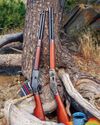
CIMARRON .32-20 Short Rifle & Carbine
In the heyday of Winchester Repeating Arms Company lever guns, it offered muskets, standard rifles, short rifles and saddle ring carbines.
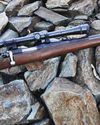
Remington's Model 722 and .222 Cartridge
It's easy enough to define what a varmint is, those pesky critters that tear up pastures, flower beds and all kinds of expensive crops people need for various reasons - most importantly, to make a living and/or something with which to feed themselves.

Coyote Bullets
What is Best for You?
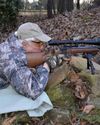
Remington's 5mm Rimfire Magnum
Shooting a Classic
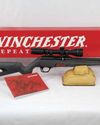
Winchester's New Wildcat
The Ultralight Rimfire Varmint Rifle
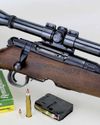
.223 Remington from .30-30 Winchester?
Multitasking for Varmints

LOADS FOR A .22 TCM
The .22 TCM first appeared commercially in 2012, chambered in a Rock Island Armory 1911-style handgun.
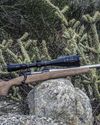
Everybody Loves Velocity
The 4,500-fps WSSM Project
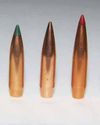
A BOLT-ACTION FRANCHI 224 VALKYRIE
Testing New Loads
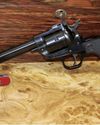
.22 Winchester Magnum Rimfire
Shooting Revolvers